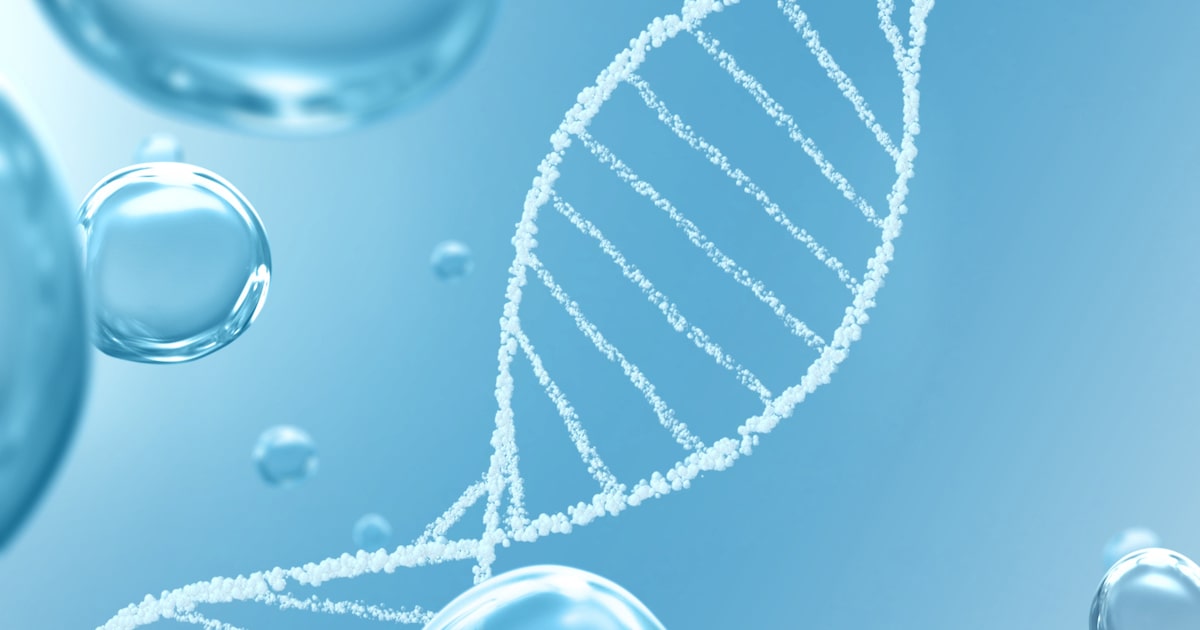
Expert Reviewed By: Dr. Brandon Colby MD
Kininogen deficiency, specifically total kininogen deficiency, is a rare genetic disorder that affects the blood coagulation system. This condition can lead to a range of symptoms, including prolonged bleeding and abnormal blood clotting. Genetic testing has emerged as a powerful tool for understanding, diagnosing, and managing kininogen deficiency. In this article, we will explore the genetic basis of kininogen deficiency, the role of genetic testing in diagnosis, and how genetic testing can be helpful for patients with this disorder.
Understanding Kininogen Deficiency
Kininogen deficiency is a rare hereditary condition characterized by a lack of two proteins in the blood: low molecular weight kininogen (LK) and high molecular weight kininogen (HK). These proteins play a vital role in blood coagulation, inflammation, and blood pressure regulation. Patients with total kininogen deficiency may experience excessive bleeding, bruising, and difficulty forming blood clots.
Several genetic mutations have been identified as the cause of kininogen deficiency. One study has reported the first molecular characterization of a kininogen gene mutation in a patient lacking LK and HK, caused by a single base mutation in exon 5 [2]. Another comprehensive analysis of HK deficiency identified 10 KNG1 variants causing the condition, with the most frequent being c.586C>T, p.Arg196* [3]. A study on a large Chinese family also reported a severe HK deficiency caused by a homozygous c.1456C > T nonsense variant [4].
Diagnosing Kininogen Deficiency
Diagnosing kininogen deficiency can be challenging due to its rarity and overlapping symptoms with other bleeding disorders. Initial diagnosis typically involves a series of blood tests to assess clotting factors and kininogen levels. However, definitive diagnosis requires genetic testing to identify the specific mutation causing the deficiency.
Genetic Testing for Kininogen Deficiency
Genetic testing is a powerful diagnostic tool for kininogen deficiency, as it can pinpoint the exact mutation responsible for the disorder. This information is crucial for accurate diagnosis, understanding the severity of the condition, and guiding treatment decisions. Genetic testing typically involves analyzing a blood sample to identify mutations in the KNG1 gene, which is responsible for producing kininogen proteins.
Uses of Genetic Testing for Kininogen Deficiency
Genetic testing for kininogen deficiency has several important applications, including:
Confirming Diagnosis
As mentioned earlier, genetic testing is essential for confirming the diagnosis of kininogen deficiency. Identifying the specific mutation responsible for the condition can help healthcare providers differentiate kininogen deficiency from other bleeding disorders and provide appropriate treatment and management options.
Family Planning and Prenatal Testing
Since kininogen deficiency is an inherited condition, genetic testing can be useful for family planning purposes. Couples with a family history of the disorder can undergo genetic testing to determine their risk of passing the condition to their children. Prenatal testing can also be performed to identify the presence of kininogen deficiency in unborn babies, allowing for early intervention and management.
Identifying At-Risk Family Members
Genetic testing can help identify at-risk family members who may be carriers of the kininogen deficiency-causing mutation. This information is valuable for individuals who may not yet show symptoms but could still pass the condition to their offspring.
Guiding Treatment and Management
Understanding the specific genetic mutation responsible for kininogen deficiency can help healthcare providers determine the most appropriate treatment and management strategies. For example, patients with severe HK deficiency may require more aggressive interventions, such as blood transfusions or clotting factor replacement therapy.
Conclusion
Genetic testing plays a vital role in understanding, diagnosing, and managing kininogen deficiency. By identifying the specific mutation causing the disorder, healthcare providers can confirm the diagnosis, guide treatment decisions, and provide valuable information for family planning and prenatal testing. As our knowledge of the genetic basis of kininogen deficiency continues to grow, genetic testing will remain an essential tool in the fight against this rare and challenging disorder.
About The Expert Reviewer
Dr. Brandon Colby MD is a US physician specializing in the personalized prevention of disease through the use of genomic technologies. He’s an expert in genetic testing, genetic analysis, and precision medicine. Dr. Colby is also the Founder of and the author of Outsmart Your Genes.
Dr. Colby holds an MD from the Mount Sinai School of Medicine, an MBA from Stanford University’s Graduate School of Business, and a degree in Genetics with Honors from the University of Michigan. He is an Affiliate Specialist of the American College of Medical Genetics and Genomics (ACMG), an Associate of the American College of Preventive Medicine (ACPM), and a member of the National Society of Genetic Counselors (NSGC)